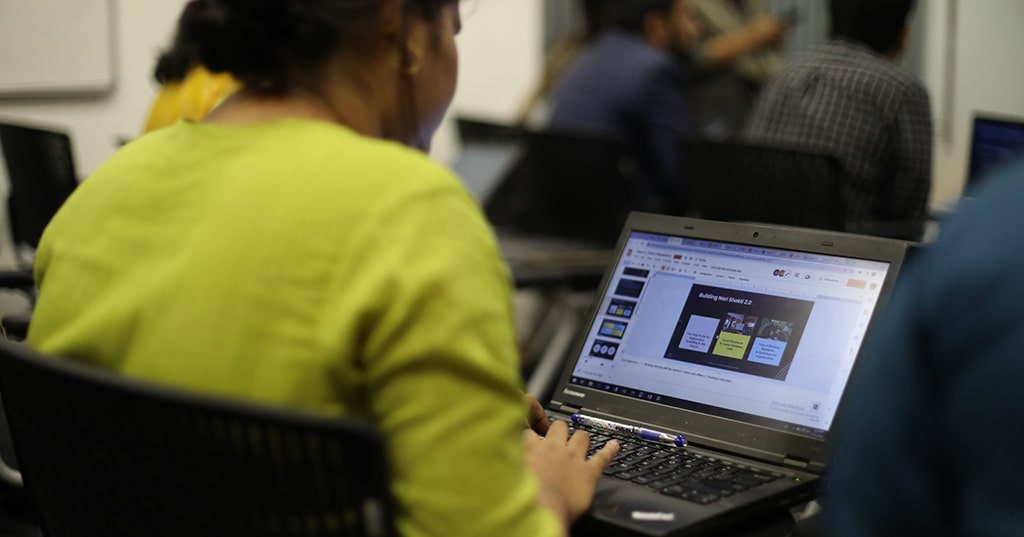
7 solutions to hack the gender gap emerge at ISPP Policy Hackathon

The morning of June 11 felt different. The ISPP campus was abuzz with young policy enthusiasts descending from 18 different colleges, some online, others in person. The ISPP Policy Hackathon began on a high note. All 28 finalists exchanged notes as Dhruva Mathur, ISPP’s Academic Coordinator took the dais to explain the rules and rubric of the hackathon. For Team ISPP, it wasn’t the first time organising a hackathon.
Every year, ISPP scholars get to participate in policy hackathons during their one-year PGP in Policy Design & Management. We still remember the last hackathon when the campus stayed open for 24 hours as scholars worked in groups on various case studies. The ebullient discussions were punctuated with incessant cups of tea, and snacks from scholars’ favourite dhaba close to Sanjay Van. A truly unforgettable experience at ISPP.
This year we decided to take the Policy Hackathon to the world beyond the ISPP campus and invited bright young minds to work together on solutions to hack the gender gap. We invited entries in the form of video submissions for the preliminary round. The response was encouraging as 28 finalists were shortlisted to compete in the grand finale. The finalists were grouped into seven teams and each team was assigned a unique problem statement in the gender domain. Unlike our in-house hackathons, these teams had just three hours to analyse, research, deliberate, and put together, not just their thoughts, but also presentations. What would have Gabbar’s response to that ticking timer? Bahut na-insafi hai. But then life is a race against time, so why not a hackathon? And then there was pizza for company!
The eminent jury members joined us as teams gave final touches to their presentations. While Dr. Sekhar Bonu, Director General, DMEO, NITI Aayog joined in person, other jury members – Dr. Alice Evans, Senior Lecturer, Department of International Development, King’s College London, and Ms. Aparna Mittal, Founder, Samāna Centre for Gender, Policy & Law joined us online.
As each team presented their solutions, the jury members asked tough questions and gave them invaluable feedback. Their suggestions nudged the teams to not just think of the plausibility of their solutions but also of gender inclusivity. Dr. Evans, who joined us from London, kept everyone in good humour with her spirited personality and quirky remarks. The day came to an end with the announcement of winners and Jury’s Choice awards. Each participant got a certificate of participation and a surprise reward, a token of appreciation from Team ISPP.
Two teams jointly won the first prize, a cash prize of Rs. 2.5 Lakh. They worked on two problem statements: ‘What kind of policy interventions will help in reducing the dropout rate of a girl child?’ and ‘How can we design policies to create better access to housing and health for women?’ The winning team members were Aditya Sinha (University of Lucknow), Ajey Karthik J (NALSAR University of Law, Hyderabad), Rajvansh Singh (Singhania University), Vidhi Narang (National Law School of India University), Paavi Kulshreshth (Delhi University), Rahul Bajaj (University of Oxford), Rahul Gupta (The Institute of Chartered Accountants of India), and Sonia Singh (School of Economics, Devi Ahilya Vishwavidyalaya). The Jury’s Choice award winners were Rahul Bajaj and Vidhi Narang.
As we bid adieu to the participants, we promised ourselves to announce the next season of ISPP Policy Hackathon soon.
We leave you with some memories from the event. Until next time!


